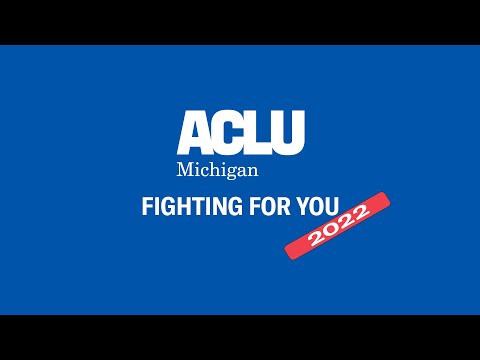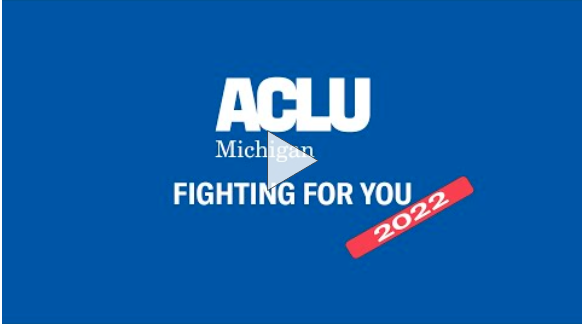In 2022, the ACLU of Michigan brought the formidable power of its legal, political, and organizing efforts to protect the fundamental constitutional rights of every person in Michigan.
Years of work by the ACLU of Michigan and its partners to ensure fair and accessible voting empowered the people of Michigan to protect reproductive freedom and expand voting rights in 2022.
In a year in which the U.S. Supreme Court stripped the longstanding protections of Roe v. Wade, we fought back with a resounding win for reproductive rights in Michigan. We ensured the passage of Proposal 3, the voter-approved ballot measure that amends the state constitution to guarantee reproductive freedom in Michigan for generations to come.
In addition to using direct democracy as a tool to protect the fundamental right to abortion in Michigan, we were also part of the longstanding coalition that succeeded in adding more expansive voting protections to the state constitution through the passage of Proposal 2. These victories would not have been possible without you.
Our wins were not limited to the ballot box. The ACLU of Michigan’s legal team successfully challenged policies and practices reflecting the systemic racism that drive and sustain barriers to fundamental rights to privacy, liberty, and equality.
We’ve compiled some of our major victories and notable accomplishments in 2022 in a short video you can view here. Please join us in celebrating, because these victories would not have been possible without you – our friends, supporters, clients, and partners.
As we reflect, we are also looking ahead to what we must do to protect these victories to ensure that the promise of what we have achieved is realized as we continue working to create creating a Michigan that is more just and equitable for all of us. One thing is certain, we will never stop fighting for you.


